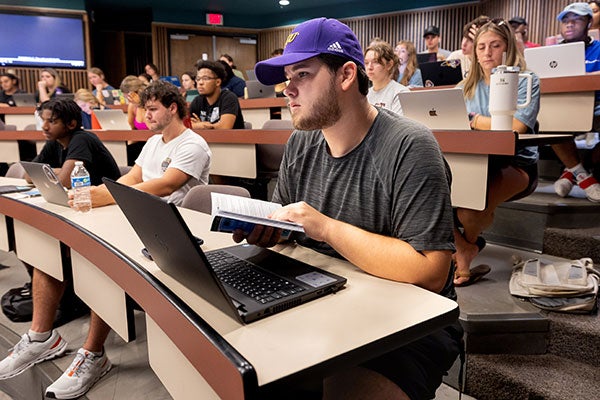Universities Worldwide Prepare for the AI Revolution


Introduction
As artificial intelligence (AI) rapidly evolves, universities across the globe are repositioning themselves to prepare students, researchers and whole institutions for the AI‑driven future. From revamped curricula to new research labs and operational transformations, higher education is undergoing a fundamental shift. This article explores how institutions are adapting, why it matters, the key initiatives underway and what it means for students and society.
1. What Universities Are Doing
Curriculum & Degrees
-
Many universities are introducing AI‑focused degrees and courses. For example, in Dubai the University of Birmingham Dubai has launched the emirate’s first PhD in AI addressing smart cities, sustainability and future mobility. (أريبيان بيزنس)
-
Institutions are embedding AI literacy across disciplines: In the U.S., colleges like Barnard College, Columbia University, New York University and Massachusetts Institute of Technology (MIT) are rolling out campus‑wide access to AI tools and literacy programmes so students across all fields can engage with AI. (The Times of India)
Research & Infrastructure
-
Universities are building or expanding AI research centres and labs. A global guide notes institutions like Carnegie Mellon University offering tracks that combine machine learning with ethics, entrepreneurship and productisation. (ETC Journal)
Operational & Institutional Change
-
The transformation isn’t limited to teaching and research: some universities are changing how they operate—adopting AI tools for scheduling, admissions, campus services, and more. (Medium)
Global & Regional Focus
-
Institutions in emerging markets are also moving fast: In the UAE, top universities and government programmes are preparing for AI‑driven transformation by partnering with international institutions. (ETEducation.com)
2. Why This Matters
-
Work‑force readiness: The job market increasingly demands AI‑related skills across all sectors, not just tech. By preparing graduates for this shift, universities help ensure future employability.
-
Innovation & competitiveness: Universities that lead in AI research and education may attract top talent, funding and partnerships — boosting their global competitiveness.
-
Societal impact: AI brings deep changes to healthcare, smart cities, sustainability and more. Universities serve as hubs for both the technological and ethical responses to those changes.
-
Equity & accessibility: With AI influencing so many spheres, making sure higher education equips all disciplines and students (not just computer science majors) is crucial for inclusive progress.
3. Key Trends & Highlights
-
Cross‑disciplinary programmes: Institutions are moving beyond pure computer science to blend AI with business, ethics, social sciences and humanities.
-
Partnerships & industry tie‑ins: Universities often collaborate with industry and government to ensure curricula align with real‑world needs and to secure resources and data access.
-
Global reach & localisation: AI education is expanding in regions like the Middle East, Asia and Africa. For example, Dubai universities are launching AI degrees tailored to local priorities. (Education UAE)
-
Mandatory AI‑components: Some institutions are going further—integrating AI literacy or modules into all programmes, regardless of discipline. For example, the newly merged Adelaide University in Australia will require AI/data technology education for all students. (أديلايد ناو)
4. Challenges & Considerations
-
Curriculum lag: AI technology advances faster than academic institutions can always adapt, which risks curricula becoming outdated.
-
Resource constraints: High‑quality AI education and research demand infrastructure (e.g., computing power, data), faculty expertise and funding — which may be limited in many regions.
-
Ethics, bias and governance: As AI becomes embedded in education and society, universities must address questions of fairness, transparency, privacy and the ethical use of AI.
-
Access and inclusion: Ensuring students from all backgrounds (and across non‑technical disciplines) have access to meaningful AI education remains a challenge.
-
Balancing depth with relevance: Universities must strike a balance between teaching foundational AI theory and providing practical, industry‑aligned skills.
5. What This Means for Students & Stakeholders
-
For students: Choose programmes that offer not just technical AI skills, but also cross‑disciplinary exposure (e.g., ethics, business, domain applications). Seek institutions that provide access to tools, real‑world projects and industry connection.
-
For educators: It’s important to continuously update content, incorporate project‑based learning, partner with industry or other disciplines, and embed critical thinking about AI’s role in society.
-
For institutions and policymakers: Higher education strategies should align with national digital/AI strategies, invest in infrastructure and support all students (not just specialists) in gaining AI literacy.
-
For your context (e.g., launching e‑commerce, managing digital business): Understanding how universities train future talent gives insights into the skills that will become available (or lacking) in the workforce and how you might tap into emerging graduates or collaborate with academic programmes.
Conclusion
Universities around the world are actively preparing for the AI revolution — reshaping curricula, research, infrastructure and institutional strategy to meet the demands of a transforming digital economy. While challenges remain, the momentum is clear: higher education is no longer peripheral to the AI story—it is central. For students, educators, institutions and society at large, the question is not if but how quickly and effectively we adapt to this new era.
Sources
-
“Chinese universities launch DeepSeek courses to capitalise on AI boom”, Reuters. (Reuters)
-
“Inside the AI push at US universities: How Barnard, Columbia, NYU and MIT are preparing students for the age of artificial intelligence”. (The Times of India)
-
“Globally Renowned Universities in Dubai Champion AI and Digital Transformation Education to Cultivate Next Generation of Leaders”. (Zawya)
-
“UAE taps top universities worldwide to prepare govt workforce in AI”. (ETEducation.com)
-
Educational Technology and Change Journal: “Universities Proactively Training Graduates for the Rapidly Evolving AI Landscape.” (ETC Journal)
-
“AI in University Operations: The Complete Global Guide (2025)”. (Medium)
